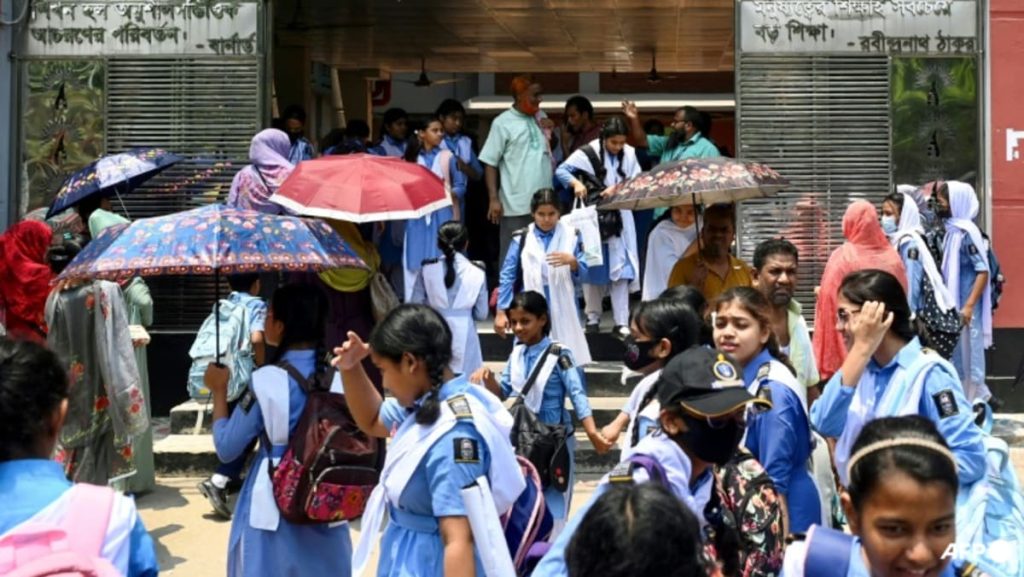Millions of students in Bangladesh returned to their schools despite a nationwide shutdown order due to a heatwave that has been affecting the country. The capital city, Dhaka, has been experiencing temperatures higher than the 30-year average, with no relief in sight. Climate change has been identified as a significant factor in the increasing intensity, frequency, and duration of heatwaves.
Anxious parents accompanied their children to school as classes resumed, concerned about the extreme heat. One parent, Lucky Begum, expressed her worry about her daughter developing heat-related ailments due to the high temperatures. The shutdown had affected around 32 million students, leading to concerns about the impact on their education and well-being.
The resumption of classes came with precautions from education authorities, including the closure of preschools and shorter hours for primary schools. The ongoing heatwave is expected to last for at least the next three days, with some relief forecasted after Thursday in the form of rain. Meteorologists have noted that this heatwave is unprecedented in its duration and coverage across the country since records began in 1948.
The intensity of the current heatwave is attributed to various factors, including climate change and human activities like rapid urbanization, deforestation, and increased use of air conditioning. These conditions are likely to lead to more severe heatwaves in the future, posing a challenge to the health and well-being of the population. Measures to mitigate the impact of heatwaves and adapt to changing climate patterns are crucial to safeguarding the welfare of people in Bangladesh and beyond.
As students and teachers return to school amidst challenging weather conditions, it is essential for authorities to prioritize the health and safety of all individuals. Adequate measures should be implemented to ensure the well-being of students, including providing access to cooling facilities, hydration, and education on heat-related illnesses. Additionally, long-term strategies to address the impacts of climate change and prevent future heatwaves should be developed to protect vulnerable populations and build resilience in the face of environmental challenges.


